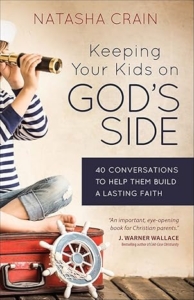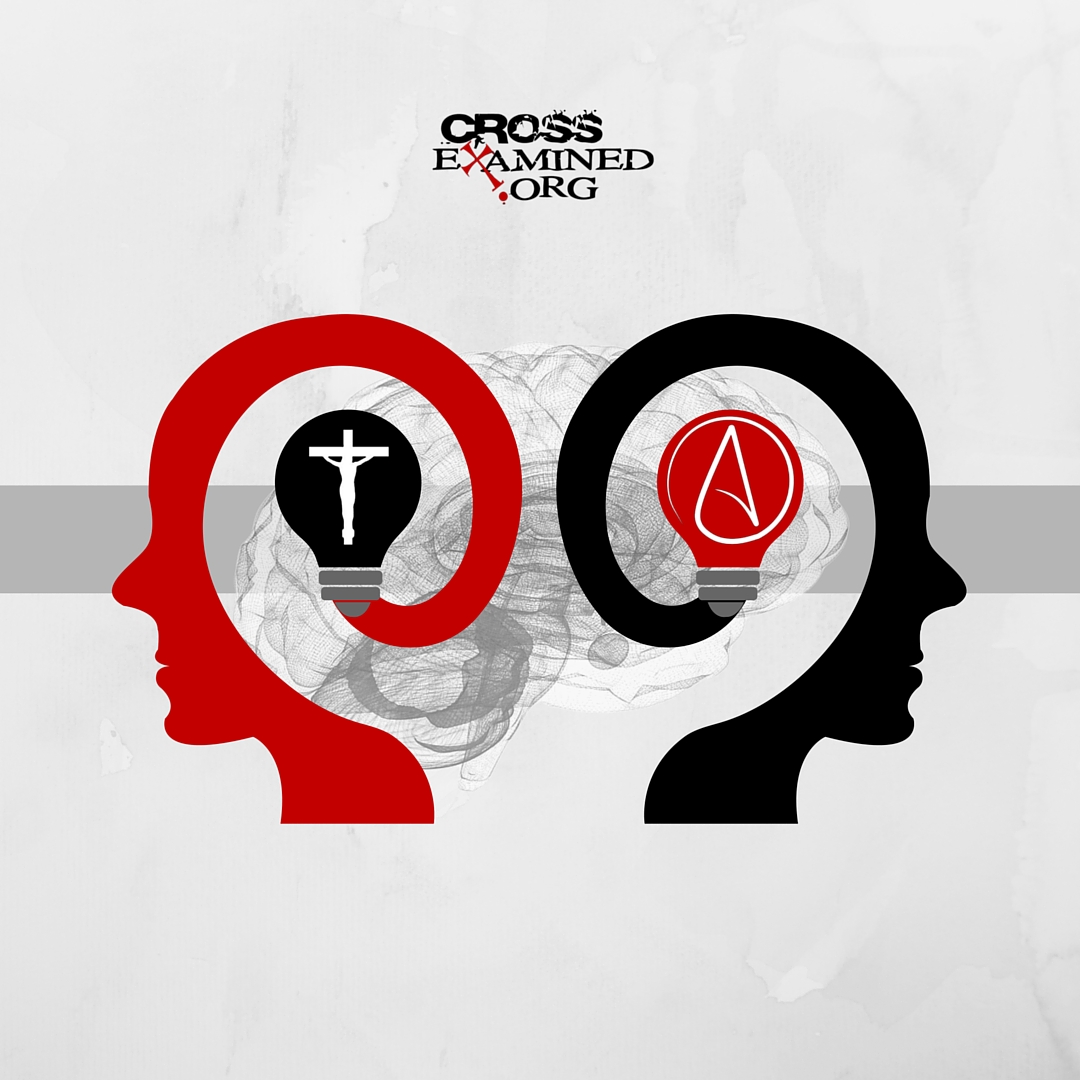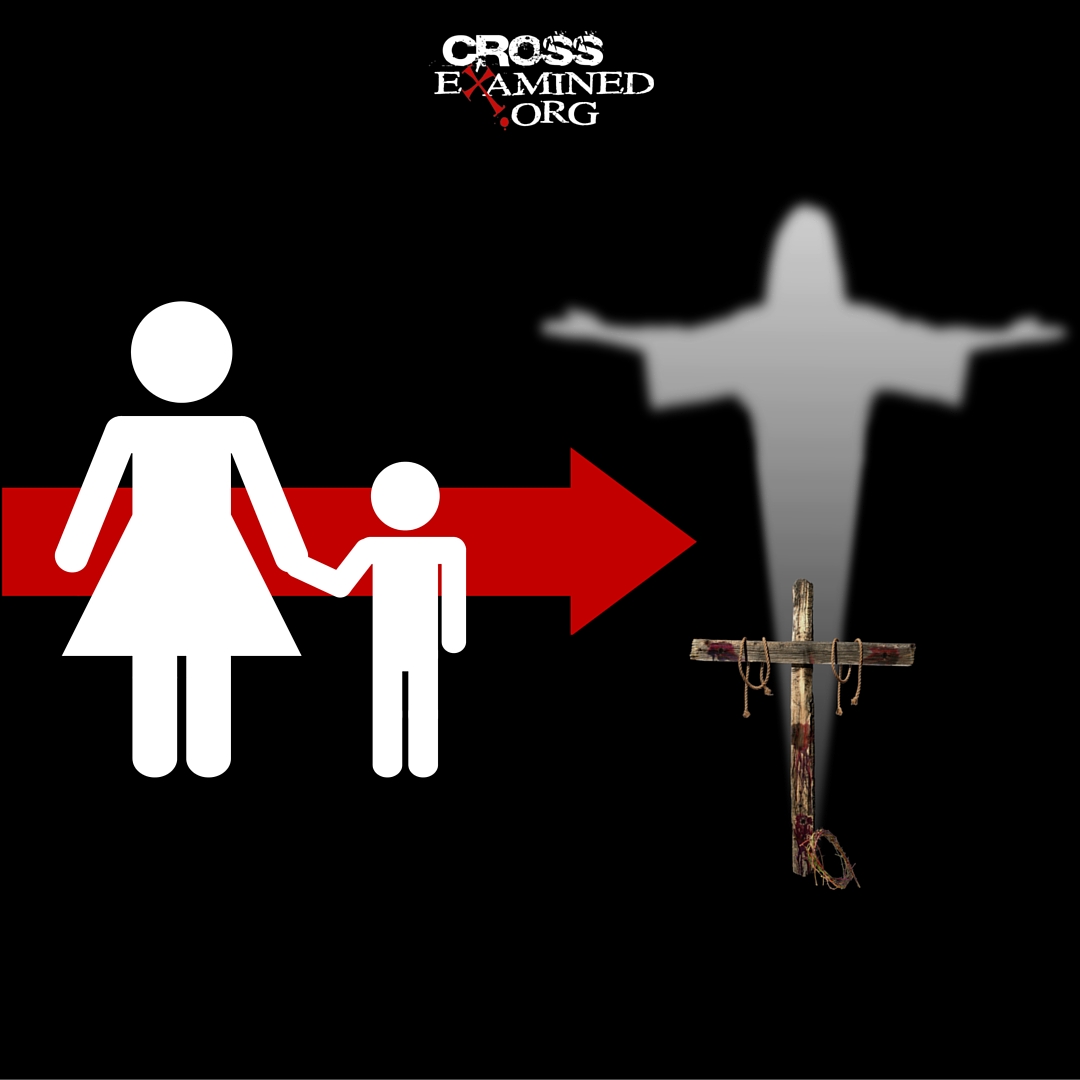By Natasha Crain
A blog reader sent me some information recently on an atheist summer camp (thanks DD!). I was fascinated to read all that they are doing to promote an atheistic worldview with their young campers. It immediately made me wonder how Christian camps stack up. After all, about 40 percent of all U.S. teens ages 13 to 17 have been a camper at least once at a religious summer camp—making camp a perfect opportunity to give large numbers of kids an understanding of why there’s good reason to believe Christianity is true and how to defend their faith in a secular world.
So are Christian summer camps imparting this critical knowledge? To find out, I Googled “Christian summer camps” and visited the websites of 100 camps across the country. I spent hours going through these sites to see what they offer so I could share the findings with you.
I wish I could say I had a positive report.
Before we look at what I found, however, I want to first give you a glimpse of an atheist summer camp for comparison.
What Happens at Atheist Summer Camps?
The largest atheist summer camp is called Camp Quest. Camp Quest started 20 years ago and has grown to 14 locations throughout the United States. According to its website, “The idea to offer a summer camp program designed for children from atheist, agnostic, humanist, and other freethinking families originated partially in response to the Boy Scouts of America’s increasing enforcement of their policy requiring boys to profess a belief in God. It became clear that children from nontheistic families needed their own place to belong and enjoy the summer camp experience.”
The camp’s tagline is, “Summer camp beyond belief!” Campers participate in all kinds of traditional camp activities—for example, archery, canoeing, climbing, crafts, dance, horseback riding, and swimming—along with an important core of “freethought” activities in line with the camp’s secular mission.
So what do they mean by “freethought”? They define it this way: “Broadly, it means cultivating curiosity, questioning and a certain disdain for just taking the word of authority; demanding evidence and knowing you can make your own observations even if they lead you to disagree.”
In other words, they do activities that aggressively teach kids their worldview in the context of others.
You might not immediately conclude this from their freethought definition. After all, doesn’tevery parent want to cultivate curiosity, encourage questions, and teach kids to think for themselves? Make no mistake, however: Camp Quest and all self-identified “free thinkers” ironically believe that freethought inevitably results in the same atheistic/agnostic conclusions.
One of the most loved freethought activities at camp is the Invisible Unicorn Challenge. The children are told that there are two invisible unicorns who live at Camp Quest but that they cannot be seen, heard, tasted, smelled, or touched. They cannot escape from camp and they don’t eat anything. The only proof of their existence is contained in an ancient book handed down over countless generations. The challenge: Can you disprove their existence?
It doesn’t take a rocket scientist to figure out that these kids are supposed to see that the idea of God is just like these invisible unicorns. While the kids will learn that you can’t strictlydisprove God’s existence (how can you disprove invisible unicorns?), they’ll also learn that there’s no evidence of them, so there’s no reason to believe in them. (The claim that there’s no evidence for the existence of God is pervasive today but flawed—see chapters 1, 7, 8, 21, 27, and 28 in my book, Keeping Your Kids on God’s Side: 40 Conversations to Help Them Build a Lasting Faith, for help talking to your kids about this subject.)
With activities like these, kids are actively learning why they should believe their worldview is an accurate picture of reality.
Meanwhile, at Christian summer camp…
What Happens at Christian Summer Camps?
I went to a Christian summer camp for several years as a kid and remember those weeks rather fondly. I remember the excitement when it was time to go to the snack bar for afternoon popsicles; I remember the smelly but fun cabins where everyone would stay up late talking; I remember being sent off by camp counselors with a notepad and pen to write a letter to God and having no idea what to do; I remember nightly songs around the campfire; and I remember having my first crush.
What I don’t remember from those years is growing in my understanding of Christian faith. Of course every camp is different, and every camper is different, so that’s not to say that my experience is representative of all or even most. But, after seeing what happens at Camp Quest, I was keenly interested in seeing how Christian camps today compare.
Here’s what I found from my survey of 100 Christian camp websites.
First, many say nothing of their Christian mission outside of generally promoting a “Christian camp” label. If you’re considering sending your kids to “Christian” summer camp, make sure you know what exactly that means. At many places, it doesn’t mean much.
Those that did detail the faith-based component of their camp were quite similar in focus. The key words repeatedly found on camp websites were: worship, relationship, good values, community, devotions, experience, and growing close to Jesus.
I want you to see first-hand the specific descriptions these camps offered. Here’s a good representation of the key phrases found throughout the sites…along with some side notes I couldn’t help but make:
- Wholesome Christian atmosphere
- Excellence in Christian camping (This made me laugh out loud. I get the term “Christian camp” but “Christian camping” makes me wonder how Christians camp differently…)
- Take the next step in your faith
- Fun, faith, friends (alliteration is fun, but it doesn’t say much)
- Demonstrate that the Christian life can be one of meaningful fulfillment (Another laugh out loud moment—“can” be?)
- Enjoy recreation in a Christian atmosphere
- Dynamic speakers (I’m glad they’re dynamic, but what will they speak dynamically about?)
- Show kids you can be a Christian and still have fun (What kind of message does this send? That everyone assumes Christians can’t have fun and this camp will prove the universal assumption wrong? How about showing kids why there’s good reason to believe Christianity is true so they understand why they should be a Christian in the first place?)
- Special moments to learn about a loving God
- Exciting Christian campfire programs
- Gain deeper insight about God (I like how that sounds, but insights could mean anything…)
- Grow strong in a welcoming Christian experience
- Transformative worship
- Campers come to know Jesus and pass on God’s love with excitement
- Give kids a moral compass and learn God’s Word
- Be encouraged and strengthened in the Lord
- Wholesome recreation consistent with Christian standards and purposes (“consistent with” is about the least committal descriptor I can think of)
- Enjoy God’s wonder
- Enthusiastic speakers (enthusiasm is great, but, again, what content are they enthusiastically sharing?)
- Establish goals to move closer to Jesus
- Provide a life-altering experience
- Enjoy high energy worship (I’m glad they clarified it’s high and not low energy…)
- Conform campers to the character of Christ
- Bring kids to a saving knowledge of Christ
- Explore faith and God’s creation while you enjoy outdoor time around the campfire
- Promote a lifestyle that honors God
- Provide strong Christian role models
- Nightly cabin devotions
- Explore actions and teachings of Jesus Christ
- Each adventure-packed day ends with campfire singing and a Bible message
- Daily group Bible studies
- Awesome worship music, live speakers, and meaningful Bible study
- Activity-based application of biblical principles
- Bible-based teaching based on shared adventures
- Values-based camping
- Help campers build a relationship with Jesus
- Experience Christian community
- Provide programs allowing campers to make a personal commitment to Jesus Christ
- Emphasize Judeo-Christian values
- Be inspired and challenged as the staff brings the Bible alive in new ways
- Christian lifestyle is demonstrated through Bible study, devotions, music, and personal interaction
- Experiences that strengthen the spirit, mind, and body under a strong Christian emphasis
- Steadfast focus on the Creator in the midst of adventures (I’m imagining a kid sliding down a zip line with camp counselors yelling, “Focus on who ultimately created this!”)
- Focus on values important to all faiths (now we’re just going to focus on the lowest common denominator?)
- Speakers sharing from their heart on how God’s Word has transformed them
If you read through all those “talking points,” it’s clear that Christian camps overwhelmingly focus on the experience of being a Christian. And, of course, facilitating opportunities to experience God is hugely important! But one of the ways we experience God is with our minds and stems from the confidence of our convictions. Out of 100 camps, just TWO explicitly mentioned anything related to teaching Christian worldview in the context of other worldviews and how to engage with our secular culture:
- Prescott Pines: “Stand up for your faith in the face of adversity” (funny enough, this is a camp in my hometown—but not the one I attended!)
- Camp Kanakuk: “Helping your child grow in their character, and ability to communicate and defend their faith”
While other camps may address these topics as part of their general Bible teaching or messages, it certainly wasn’t a focus enough for them to explicitly mention it on the other 98 sites. I’m not saying that every single camp should have this as an emphasis, but given the challenges kids are facing today, the fact that 98% of camps are at the very least not promoting that they’re going to talk about Christianity in the context of other worldviews is both surprising and disappointing.
What Should We Make of All This?
In terms of numbers, the attendees at Christian camps far outnumber those at atheist camps. But if you’re tempted to think that means we shouldn’t care about this comparison, you’re missing the point.
Atheists are still a small percentage of Americans overall (5-10%), but their numbers are quickly gaining because they aggressively promote what they believe to be the truth of their worldview versus the falsities of other worldviews. Meanwhile, the number of Christians in America continues to decline in response. Churches have been slow to realize the urgent necessity of teaching apologetics given the increasing challenges to faith today…and it’s clear that Christian summer camps are no different.
This is a shame. Truly. A lost opportunity with thousands of kids.
I hope that this post will reach the inbox of people involved with camps and encourage them to think of how their program next summer might be more tailored to these subjects.
Importantly, that doesn’t mean there shouldn’t be “exciting campfires,” devotionals, “high energy worship,” fun speakers, and so on. All of these things contribute to a memorable camp experience. But there may be nothing more important today for helping kids draw nearer to Jesus (a stated goal of most camps) than helping them know confidently why there’s good reason to believe Christianity is true.
If you’re involved in camp planning for your church or other organization and want some content ideas for teaching apologetics at next year’s camp, please email me through my contact form.
Addendum: Two Camps to Consider
There are two fantastic programs for teens that do focus on equipping kids to engage critically with other worldviews and I want to make sure you know about them as you consider opportunities for next summer.
First, Summit Ministries offers intensive two-week retreats designed to teach older teens how to champion a biblical worldview and to strengthen their faith in a post-Christian culture. These retreats are in Colorado, Tennessee, and California. They have incredible speakers. If you want to see what Christian camp can look like, check out their sample schedule. Wow.
Second, Faith Ascent’s Base Camp in St. Louis offers “5 days and 4 nights of fun, fellowship, and intense preparation for the challenges and opportunities college bound Christians will be presented with. In a real college environment we ask and answer the tough questions Christian teens are asking (and being asked).” They, too, have fantastic speakers and an incredible schedule.
I hope you’ll check out these excellent programs and consider them for next summer if you have kids of the appropriate age.
Resources for Greater Impact:





 LEE STROBEL 3-DISC COLLECTION
LEE STROBEL 3-DISC COLLECTION COLD-CASE CHRISTIANITY: A HOMICIDE DETECTIVE INVESTIGATES THE CLAIMS OF THE GOSPELS
COLD-CASE CHRISTIANITY: A HOMICIDE DETECTIVE INVESTIGATES THE CLAIMS OF THE GOSPELS
 I DON’T HAVE ENOUGH FAITH TO BE AN ATHEIST
I DON’T HAVE ENOUGH FAITH TO BE AN ATHEIST INTELLECTUAL PREDATORS: HOW PROFESSORS PREY ON CHRISTIAN STUDENTS
INTELLECTUAL PREDATORS: HOW PROFESSORS PREY ON CHRISTIAN STUDENTS
 OT God vs. NT God
OT God vs. NT God







 http://bit.ly/2axGp8H
http://bit.ly/2axGp8H http://bit.ly/2aZGsGC
http://bit.ly/2aZGsGC http://bit.ly/2aZH1jK
http://bit.ly/2aZH1jK